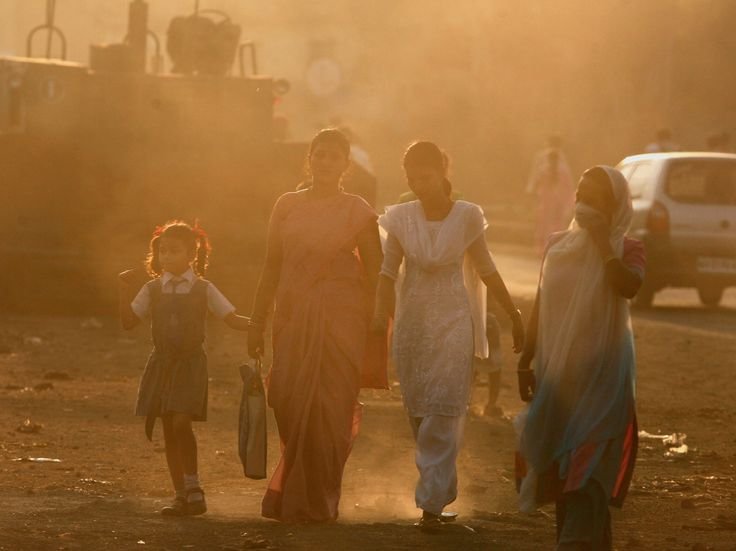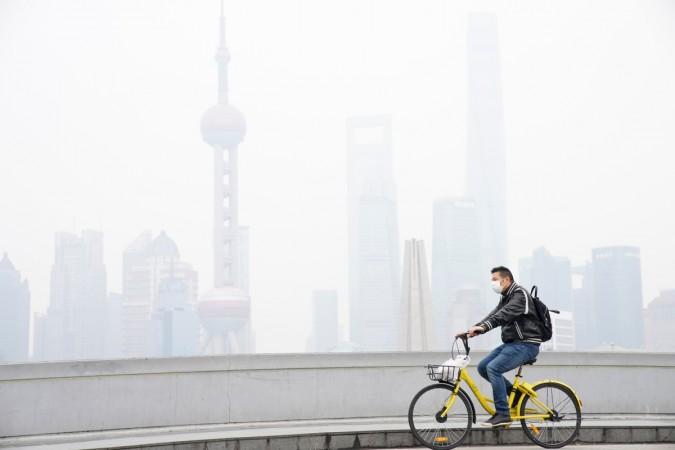11 Dec 2024

Tired Earth
By The Editorial Board

Air pollution – we are always concerned if our city is on the list! And, it has been an ongoing topic of discussion and concern. Whether we realise it or not, air pollution does and will affect us all. While it often gets ignored in Indian households, there are many reasons to make a conscious effort to reduce and eliminate the risk it brings to the table.
But the question is, how much do people really know about it? Here are some popular questions answered by Muzaffar Izamuddin, Design Manager, Environmental Care at Dyson, which shed some light on air pollution and air quality.
Yes, but air pollution seems to grab attention when we see smog or haze. We often forget that visible pollution is not the only form of harmful pollution and that invisible air pollution such as nitrogen oxides can exist all year round and can be more or equally deadly.
Home isn't always a safe haven and indoor air pollution can be worse than outdoors. Pollution can be generated indoors through day-to-day activities, enter the house from outside, emit from surfaces and eventually make up a complex cocktail of pollutants. As we increasingly seal our homes to seemingly shut pollution out, in truth, we are maybe shutting it in.
Every day we can breathe in up to 9,000 litres of air and spend up to 90% of our time behind closed doors. Daily household activities such as VOCs (volatile organic compounds) released from using cleaning solvents, deodorants and scented candles are some of the more common indoor air pollutants. Other major indoor air pollutants include gases from cooking and central heating, mould, allergens, pollen and pet dander, or formaldehyde from mass-produced furniture. Whether we are at home or in office, we could be breathing potentially harmful air. Having an air purifier with both HEPA and activated carbon filter to capture both pollutant particles and toxic gases can help improve the air quality inside your homes to great extent.

The indoor and outdoor air pollution are often treated as two separate entities but outdoor pollutants, such as vehicle exhaust fumes, pollen and mould spores, can also enter our indoor spaces. Once inside, they can react with indoor pollutants, creating a complex cocktail of dirty air. Likewise, indoor pollutants, such as smoke from burning wood or cooking fumes, can exit buildings through ventilation. This continuum blurs distinctions between indoor and outdoor pollutants but with the right knowledge, we can take simple measures to prevent toxic air building up inside the homes. For instance: we can control our indoor air with an air-purifier.
It is a 365-day issue! Different seasons see an increase in certain pollutants due to various factors such as temperature, climate, and human activities. Worsening air quality is a global problem, and India is one of the largely impacted countries. As per the World Health Organisation (WHO), India has 37 of the world's 50 most polluted cities, throwing light on the much ignored issue of air pollution and the need to catalyse clean air in the country all year round.

Air quality is a complex issue, and the impact depends on multiple factors, including but not limited to age, location, health, how active one is and length of exposure time. To name just a few!
Dyson has spent a lot of time researching the impact of indoor air pollution. Every day we can breathe in up to 9,000 litres of air and spend up to 90% of our time behind closed doors and that's even before lockdown. Whilst the specific medical impact of indoor air pollution continues to be researched, we know that exposure time is a very important factor, and therefore indoor air quality, logically, impacts us the most because our length of exposure time is higher.
The Air Quality Index (AQI) is an index for reporting air quality on a daily basis. It is a measure of how air pollution affects one's health within a short time period. The purpose of the AQI is to help people know how the local air quality impacts their health. A yardstick that runs from 0 to 500; the higher the AQI value, the greater the level of air pollution and the greater the health concerns. The concept of AQI has been widely used in many developed countries for over the last three decades. AQI quickly disseminates air quality information in real-time.
We can do little to control the quality of the air we breathe outside. But we can follow these tips to try and keep your home free of pollution.
Source : ibtimes.co.in
Comment